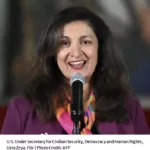As we navigate the complex labyrinth of modern life, it becomes evident that a critical facet often overlooked in the academic journey of our youth is financial literacy. An essential life skill that equips individuals with the tools to make sound fiscal decisions, financial education should no longer be relegated to optional workshops or post-graduation endeavors. It is high time that high schools embrace the imperative of incorporating comprehensive personal finance management into their curriculum, thereby shaping financially astute citizens ready to confront the fiscal challenges of adulthood.
The transition from school to the real world is often met with enthusiastic anticipation, yet many young adults find themselves ill-prepared to navigate the labyrinth of personal finance. In this era of pervasive social media influence, the illusion of swift wealth accumulation can deceive the uninformed. However, the harsh reality is that building personal wealth, for the average individual, is a protracted journey demanding unwavering dedication, patience, and financial discipline, spanning 15 to 20 years.
Graduates embarking on their professional journeys often face the predicament of either lavish spending or unproductive hoarding of income in savings accounts. The justification often cited for the latter is the initial modest income, with plans to commence savings when earnings increase.
This approach, however, is inherently flawed. Consider a hypothetical scenario in which an individual experiences a 10% reduction in their salary. Does this precipitate a financial crisis, rendering them incapable of meeting their financial obligations? In reality, most individuals adeptly adapt to such changes.
Warren Buffet, the venerable financial sage, espoused the wisdom of “spending what is left after saving, not saving what is left after spending.” This simple yet profound philosophy urges individuals to consistently allocate a minimum of 10% to 20% of their monthly earnings to savings immediately upon receipt.
Cultivating such a habit instills a culture of prudence and fiscal responsibility. Having underscored the paramount importance of saving and financial management, it is pertinent to explore strategies for achieving this objective. While acknowledging that unique circumstances necessitate nuanced approaches, certain foundational principles are universally applicable.
For new professionals, securing health insurance should be the foremost priority. With the potential for astronomical medical expenses, safeguarding one’s immediate health is a non-negotiable step. Subsequently, consideration should be given to term insurance to secure the financial future of dependents.
Term insurance, though often perceived as non-urgent, is an indispensable safeguard against life’s unpredictability. By securing the financial well-being of loved ones, it grants peace of mind.
Once immediate and long-term financial security is established, opening a Public Provident Fund (PPF) account and capitalizing on the ₹1.5 lakh annual tax deduction limit is advisable. Although the interest rates offered by PPF are relatively modest, it is a secure investment avenue with tax-free returns. Initiating PPF contributions early in one’s career can result in a substantial corpus by age 35, tax-free upon withdrawal.
Establishing a dedicated emergency fund equivalent to one year’s salary, invested in debt funds or fixed deposits, is prudent. This safeguard provides a financial cushion in the event of unforeseen disruptions, thereby preserving investments even during stagnant periods.
For those seeking to expand their savings horizon, consider engaging in Systematic Investment Plans (SIPs) in mutual funds. This approach, particularly in index-based mutual funds aligned with savings objectives, offers a sensible entry point for novice investors. Informed financial advisors can further tailor comprehensive financial strategies, recognizing that some may aspire to meet short-term goals, while others seek long-term financial growth.
Realizing augmented savings often necessitates a disciplined reduction in expenses. The intuitive notion of cost-cutting is frequently overlooked, with avoidable expenditures accumulating unnoticed. An essential axiom is to refrain from engaging in purchases on equated monthly installments (EMIs), as this perilous practice can ensnare individuals in a debilitating cycle of debt.
In lieu of succumbing to the allure of EMIs, prudent planning and disciplined savings ought to precede acquisitions. It is worth noting that accumulating interest on savings is considerably more advantageous than servicing interest on debts.
One notable exception to the EMI aversion is when acquiring a home through a mortgage. Even then, it is judicious to allocate a substantial down payment from savings to diminish the loan burden.
In acknowledging that there is no one-size-fits-all financial strategy, sharing personal experiences serves as a valuable beacon for the upcoming generation. By integrating comprehensive financial education into the high school curriculum, we empower the youth with the foresight and competence to navigate the intricacies of personal finance, thereby forging a generation of fiscally savvy citizens poised for financial success.







